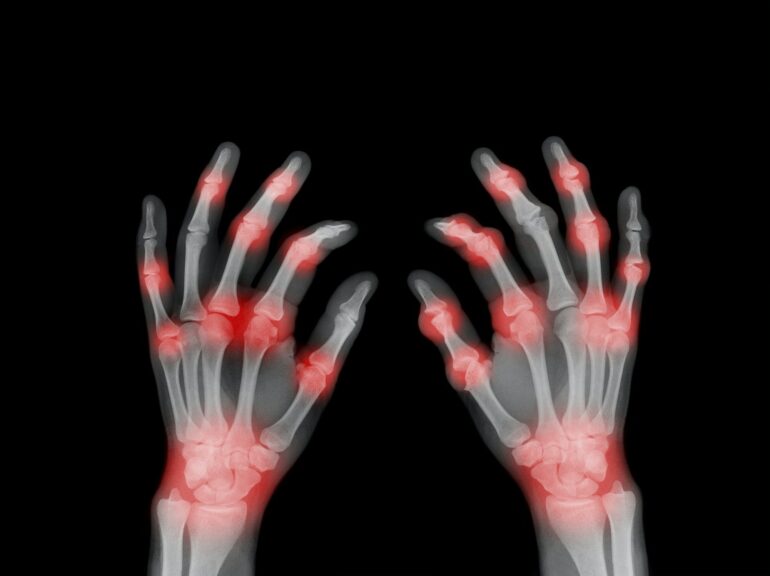Rheumatoid arthritis affects 1 in 100 people worldwide. It causes inflamed, painful and swollen joints, often in the hands and wrists, and can lead to loss of joint function as well as chronic pain and joint deformities and damage. What causes this condition has been unknown.
In our recently published study, my colleagues and I found an important clue to a potential culprit behind this disease: the bacteria in your gut.
What causes rheumatoid arthritis?
Rheumatoid arthritis is an autoimmune condition, meaning it develops when the body’s immune system starts to attack itself. Proteins called antibodies, which usually help fight off viruses and bacteria, begin to attack the joints instead.
The origins of the antibodies that cause rheumatoid arthritis have been an area of study for many years. Some research has shown that these antibodies can start forming at sites like the mouth, lung and intestines over 10 years before symptoms arise. But until now, it was unclear why researchers were finding these antibodies in these particular areas.
Rheumatoid arthritis can develop at any age.
We wanted to investigate what could trigger the formation of these antibodies. Specifically, we wondered if bacteria in the microbiome, a community of microorganisms that live in the intestines, might be the ones activating the immune response that leads to rheumatoid arthritis. Since microbes commonly live at the same sites as the antibodies driving rheumatoid arthritis, we hypothesized that these bacteria could be triggering the production of these antibodies. We reasoned that though these antibodies were meant to attack the bacteria, rheumatoid arthritis develops when they spread beyond the intestines to attack the joints.
First, we sought to identify the intestinal bacteria targeted by these antibodies. To do this, we exposed the bacteria in the feces of a subset of people at risk for developing rheumatoid arthritis to these antibodies, allowing us to isolate just the bacterial species that reacted and bound to the antibodies.
We found that one previously unknown species of bacteria was present in the intestines of around 20% of people who were either diagnosed with rheumatoid arthritis or produce the antibodies that cause the disease. As a member of the Cherokee Nation of Oklahoma, I suggested we name this species Subdoligranulum didolesgii (“didolesgii” means arthritis or rheumatism in Cherokee) as a nod to the contributions that other Indigenous scholars have made to science as well as the fact that rheumatoid arthritis affects Indigenous people at a higher rate than other populations.
Subdoligranulum didolesgii has not been detected in the feces of healthy people before, and it is currently unknown how prevalent this bacteria is in the general population.
We also found that these bacteria can activate specialized immune cells called T cells in people with rheumatoid…



